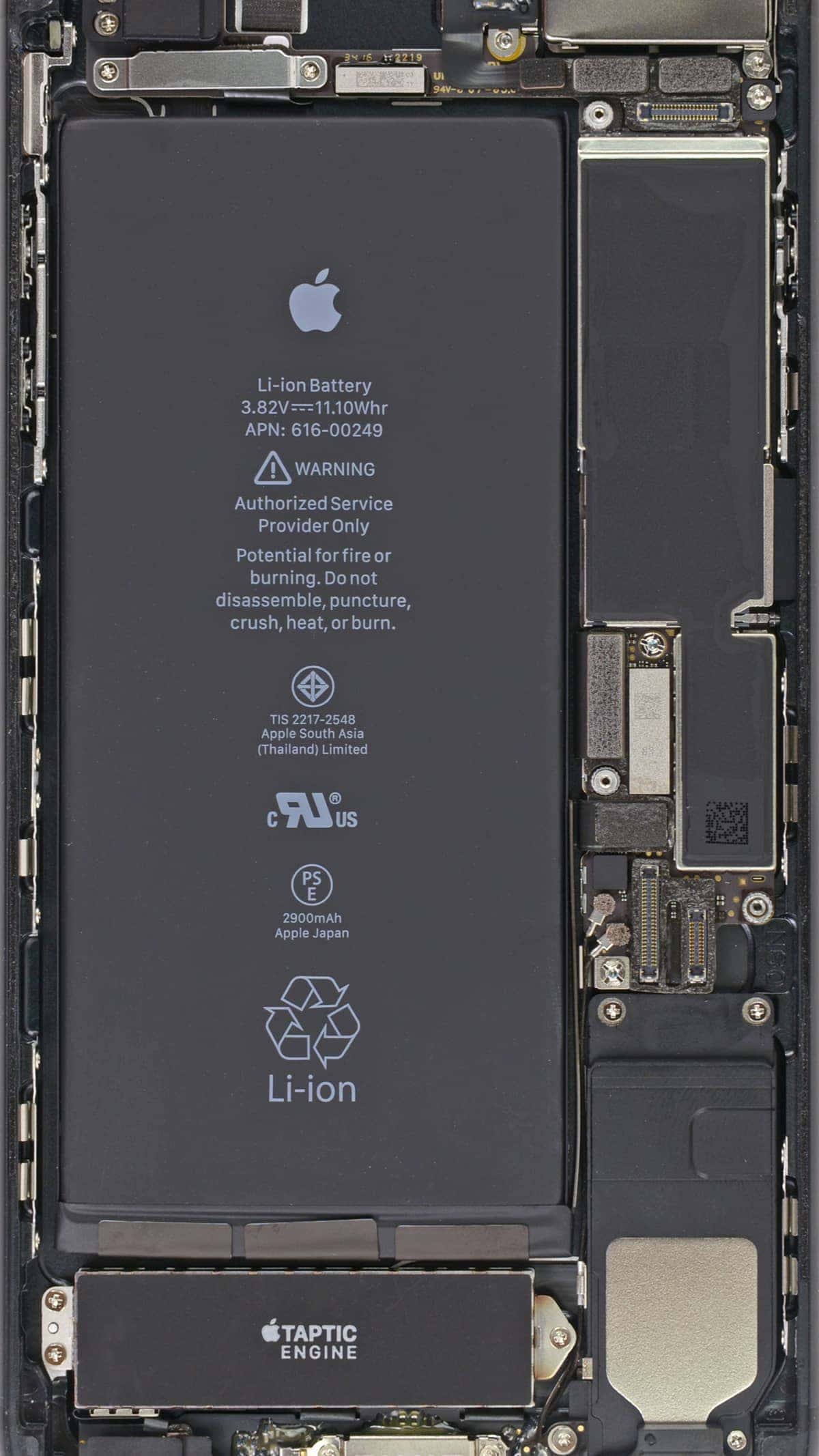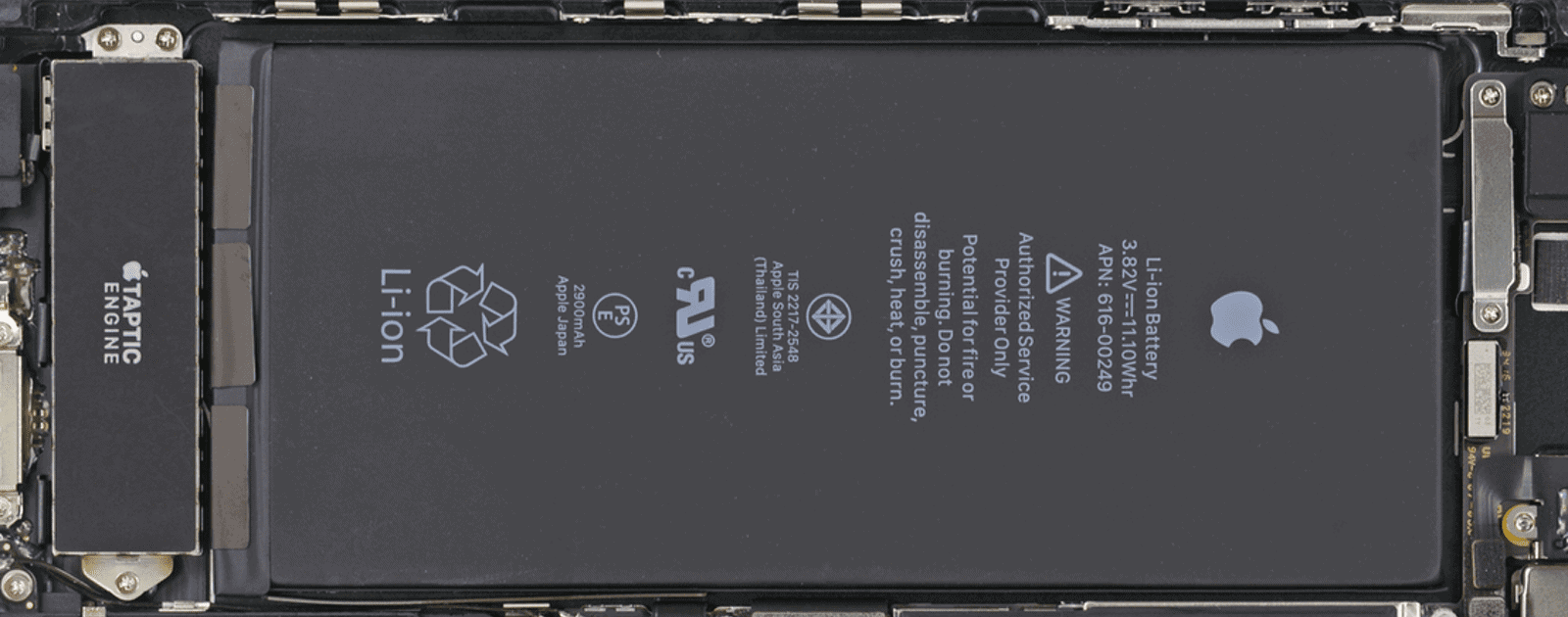Reddit user u/ZedEffective recently made a post regarding the iPhone throttling issue. As a battery scientist, they offered comments on what’s actually going on behind the scenes.
Peak Capacity
ZedEffective noted that what battery engineers view to be a healthy battery is different than what your average, everyday consumer thinks is normal. When a lithium-ion battery’s capacity falls to around 70%-80%, that’s actually considered the battery’s end of life (EOL). [Source 1, 2]
These batteries work by moving lithium ions between graphite and another material. Over time the materials age and become damaged. During this process, it’s normal for side effects to occur. The main causes of “cell death” include:
- Repeated cycling damages and cracks the graphite anode, lowering the amount of ions able to be intercalated into it
- Lithium metal plates on the anode and can pose thermal risk, also lowers total Li-ions available for cycling
- Passivation layers increase cell resistance past a practically useable point, and the cell cannot draw peak current
The last effect is the biggest reason why your iPhone shuts down when it has 50% battery left. Batteries are active chemical systems and can only perform at peak capacity for a limited number of times before they start to degrade.
From this perspective, Apple’s throttling of the battery is an attempt to minimize the number of these side effects and shutdowns. So to a battery scientist, this is perfectly reasonable.
Of course, Apple should have communicated this better to consumers. Simplicity is the raison d‘être of the iPhone, but maybe the class action lawsuits could have been avoided if the company used clear language to explain what could happen before it happened.
It’s also interesting to note that the iPhone is Apple’s last product operating on a 500 cycle battery. Other devices, like the Apple Watch, iPads, and MacBooks have batteries meant to last at least 1000 cycles.
Backup & Restore
Finally, as Michael Glenn notes, if your iPhone is acting up, try performing a full backup and restore. You can back up your iPhone using iCloud, iTunes, or a third-party app like iMazing. Then, go to Settings > General > Reset > Erase All Content and Settings on your iPhone. This should only be used as a last resort, but if the newest iOS 11 updates haven’t fixed bugs you may have, then it’s worthwhile to try something else before you bring it to an Apple store.

Some people want to waste their money on frivolous and baseless lawsuits. That’s their prerogative.
Expecting Apple to pay them because they refuse to replace a dying battery in their iPhones, is like suing a flashlight manufacturer because the user refuses to replace the dying batteries in a flashlight.
Battery replacement is a fact of life for smartphone owners, and unless the phone is still covered under warranty, it is the owner’s responsibility to replace the battery (which is not a huge expense anyways).
Apple’s iOS allows people to use their phones with dying batteries by slowing the processing so that the iPhone doesn’t shut down entirely due to the low current from the fading battery. Prolonging the use of an iPhone with a dying battery, and avoiding the disruptive shutdown of the iPhone, is a benefit for the user.
Instead of complaining (and suing) about a software feature that saves them anxiety, those users should just do the simple, normal thing… Replace the battery in their iPhones.
I agree with you that Battery, if not covered under warranty, are the consumer’s responsibility. I also agree that the mfg. shouldn’t be sued for something that’s a result of an aging battery.
The issue is that Apple failed to communicate the issues surrounding the OS update, battery issues, etc. and the average consumer is naive and clueless on anything technical. Only a small percentage of users have some degree of technical knowledge. even many of the iPhone reviewers didn’t know what caused the slow down.
Now, as far as suing Apple over it? I think that’s a little on the extreme side and it’s the greedy lawyers, which are typically not technically proficient in understanding, are the one’s trying to make a name for themselves, and hopefully some quick money since Apple’s flush with cash. That’s the problem with having lots of money. You are simply more exposed to lawsuits, whether or not they actually have merit. People like to sue rich people and/or wealthy companies as they just get the idea that their’s money to be had. Sure, many lawsuits are not frivolous, but I think this one might be. If any damages are proven, it’s not going to be much. Slowing down is still a working unit and it’s not like they were slowing down drastically. It was typically a very minor slowdown.